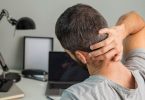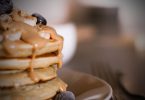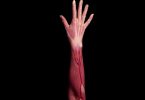Wasps are a type of flying insect that can be found in many parts of the world. While wasps are generally not aggressive, they can sting if they feel threatened, which can result in pain, swelling, and other discomforts. If you’ve been bitten by a wasp, it’s important to take immediate action to alleviate the symptoms and prevent further complications. In this article, we will explore some effective home remedies that you can try if you’ve been bitten by a wasp.
- Remove the Stinger: Wasps have stingers that they use to inject venom when they bite. If you see a stinger in your skin, use a pair of tweezers or the edge of a credit card to gently scrape it out. Do not use your fingers or nails to avoid squeezing more venom into the wound.
- Wash the Affected Area: After removing the stinger, wash the area thoroughly with mild soap and water to clean the wound and reduce the risk of infection. Avoid using hot water, as it can increase blood flow and potentially spread the venom.
- Apply Cold Compresses: Cold compresses can help reduce pain, swelling, and inflammation associated with wasp bites. You can use ice wrapped in a towel or a cold pack and apply it to the affected area for 10-15 minutes at a time. This can help numb the area and provide relief.
- Use Baking Soda Paste: Baking soda is known for its anti-inflammatory properties, which can help reduce swelling and alleviate itching caused by wasp bites. Mix a teaspoon of baking soda with enough water to make a thick paste, and apply it to the affected area. Leave it on for 10-15 minutes, then rinse it off with water.
- Try Vinegar: Vinegar is acidic in nature and can help neutralize the venom from wasp bites. Soak a cotton ball in white vinegar or apple cider vinegar, and apply it to the bite site for a few minutes. You can also mix equal parts of vinegar and water and use it as a rinse to cleanse the affected area.
- Apply Honey: Honey has natural antibacterial properties and can help soothe the skin and reduce inflammation caused by wasp bites. Apply a small amount of honey directly to the bite site and cover it with a bandage. Leave it on for a few hours before rinsing it off.
- Take Over-the-Counter Medications: Over-the-counter pain relievers such as acetaminophen or ibuprofen can help alleviate pain and reduce inflammation from wasp bites. Follow the dosage instructions on the package and consult with a healthcare professional if you have any medical conditions or are taking other medications.
- Elevate the Affected Area: If the wasp bite is on a limb, elevating the affected area can help reduce swelling. Keep the limb elevated above heart level, if possible, to promote blood flow away from the bite site.
- Avoid Scratching: It’s important to resist the urge to scratch the bite site, as it can worsen the itching and potentially lead to infection. Keep your nails short and try using a cold compress or applying a soothing cream to relieve the itching.
- Seek Medical Attention: While most wasp bites can be treated at home with these remedies, some individuals may have severe allergic reactions or experience anaphylaxis, which is a life-threatening reaction. If you develop difficulty breathing, hives, dizziness, or other severe symptoms, seek immediate medical attention.
In conclusion, if you’ve been bitten by a wasp, it’s essential to take prompt action to alleviate the pain, swelling, and other discomforts associated with







